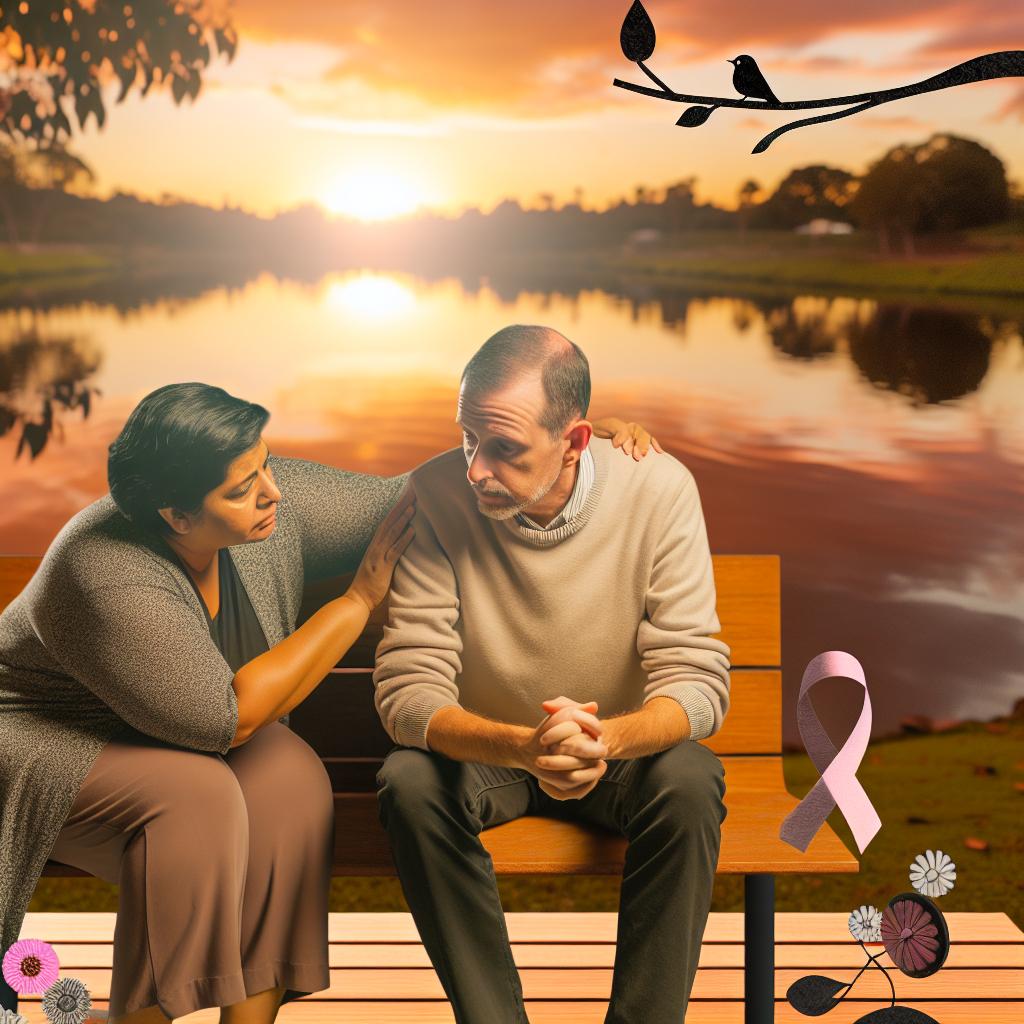Understanding Survivor’s Guilt
Survivor’s guilt is a common yet often misunderstood emotional response that can occur in individuals who have successfully navigated through life-threatening illnesses such as cancer. This phenomenon typically manifests as guilt for having survived while others, unfortunately, did not share the same fate. The emotional complexity of survivor’s guilt can interfere with the recovery process, requiring time, understanding, and support to manage effectively and ensure a healthy progression toward emotional well-being.
Causes of Survivor’s Guilt in Cancer Recovery
Survivor’s guilt in cancer recovery may be caused by a myriad of experiences and emotions. Cancer survivors often look back on their treatment journey, and in doing so, they may feel burdened by thoughts of patients they met along the way who lost their battle with the disease. Such feelings can become more acute when survivors hear of others with similar diagnoses who have not survived, exacerbating their own emotional response.
This guilt can be compounded by feelings of unworthiness—a belief that they did not deserve to survive—particularly when comparing their circumstances to those who were less fortunate. The ‘why me’ question looms large, driving introspection that, if not addressed, can be emotionally taxing. Survivor’s guilt may not only result from individual comparisons but also from cultural or familial expectations that may imply an obligation to justify survival through specific actions or achievements.
Impact on Mental Health
Experiencing survivor’s guilt can significantly impact an individual’s mental health, resulting in issues such as anxiety, depression, and difficulties in embracing the recovery process. It can create barriers to accepting one’s health improvements and may even lead to a reluctance to share recovery milestones with others who are still battling illness. The pressure of reconciling joy in recovery with sorrow for others’ losses can hamper the healing trajectory.
Having a deep understanding of these potential psychological impacts is essential for survivors, as well as their families and healthcare providers, for addressing them effectively. Without adequate acknowledgment and intervention, the emotional weight of survivor’s guilt can become a substantial hurdle, diminishing quality of life and acting as a potential trigger for recurring mental health issues.
Professional Support and Therapy
Engaging with mental health professionals is a prudent step for individuals under the influence of survivor’s guilt. Therapies, such as cognitive-behavioral therapy (Cognitive-Behavioral Therapy or CBT), have proven effective in assisting individuals to cope with guilt by addressing and altering negative thought patterns. CBT can provide tools to reframe guilt-laden thoughts into more constructive perspectives, encouraging individuals to process their experiences in healthier, less self-critical ways. Counselors and therapists are equipped to offer a compassionate understanding and provide skills to help manage these complex emotions.
Strategies for Coping
While therapy remains a valuable resource, survivors can also adopt additional strategies to alleviate the burden of survivor’s guilt. Over time, these strategies can contribute significantly to emotional healing and support personal growth. Developing a multipronged approach to coping ensures that survivors are equipped with versatile tools to manage their emotions.
Community and Support Groups
Connecting with others who have undergone similar experiences can provide essential emotional support. Support groups, whether they meet in person or exist in online communities, offer platforms to share feelings, experiences, and coping strategies. Among peers, survivors may find empathy, understanding, and a shared perspective on the journey to recovery. The exchange of stories can validate their experiences, creating a supportive web that shields against isolation.
Mindfulness and Meditation
Incorporating practices such as mindfulness and meditation can help individuals focus on the present moment, effectively reducing negative or spiraling thought processes. Regular meditation encourages a balanced state of mental well-being and nurtures resilience. Engaging in mindfulness allows survivors to observe their thoughts without judgment, fostering emotional awareness and facilitating psychological flexibility.
The Role of Education and Awareness
Raising awareness about survivor’s guilt plays a vital role in reducing stigma and fostering a compassionate understanding of this emotional response. Educating both survivors and their supportive networks about survivor’s guilt can improve communication and cultivate empathetic support, aiding in the mitigation of feelings of isolation and misunderstanding.
Autobiographical Writing and Journaling
Writing about personal experiences can be an effective outlet for processing complex emotions. Keeping a journal or engaging in autobiographical writing about their cancer journey allows survivors to reflect on their progress, rendering the healing process tangible. Through writing, they gain insights into their own emotional landscapes, potentially marking milestones in their journey and comprehending the depth and breadth of their survivor’s guilt.
Conclusion
For cancer survivors coping with survivor’s guilt, it is essential to recognize that these feelings are not uncommon. By leveraging professional support, fostering community connections, and employing personal strategies, individuals can work toward resolving these emotions and gradually embracing their journey to recovery. As awareness of survivor’s guilt expands, the path to coping transforms into a collective endeavor, paving the way for improved societal support and greater understanding. Through shared empathy and open dialogue, the journey toward emotional recovery becomes less solitary and more inclusive, offering hope and healing to those who navigate this difficult emotional terrain.
This article was last updated on: June 10, 2025

